If you’re wondering what is the difference between air purifier and humidifier or what’s the difference between air purifier and humidifier or air purifier vs humidifier, you’ve come to the right place.
Air purifiers and humidifiers are two essential devices designed to enhance the quality of the air in your living space. While both aim to create a healthier environment, they serve distinct purposes. In this article, we’ll delve into the key differences in air humidifier vs air purifier, helping you understand when and why you might need one or the other.
Understanding Air Purifiers
Definition and Purpose of Air Purifiers
Air purifiers are specialized devices designed to remove contaminants and particles from the air. They play a vital role in improving indoor air quality by eliminating harmful particles.
Air purifiers come in various types, each with unique mechanisms to address different types of contaminants. Common types of air purifiers include:
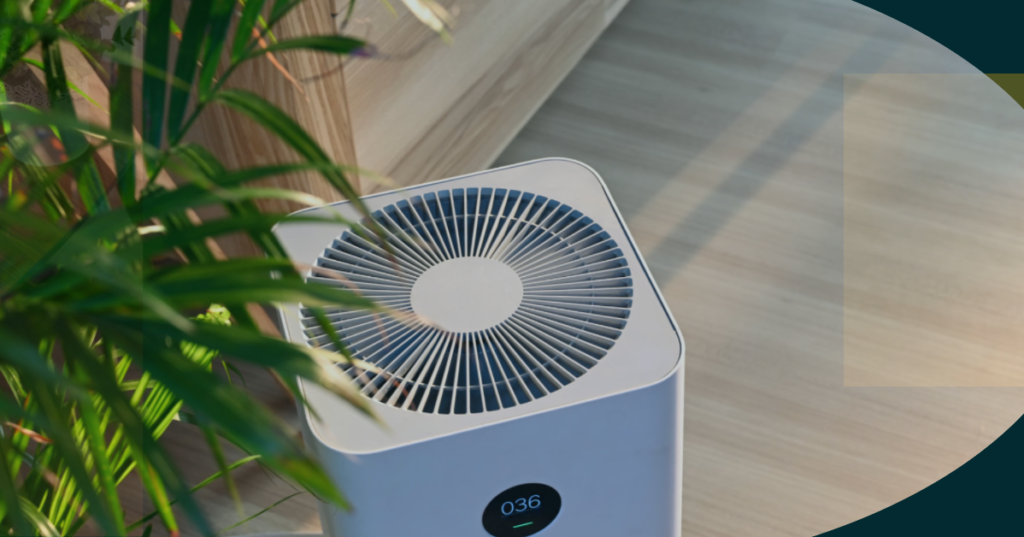
HEPA Air Purifiers
HEPA (High-Efficiency Particulate Air) purifiers are highly efficient at capturing particles as small as 0.3 microns. They are incredibly effective in removing allergens like dust, pollen, pet dander, and mold spores.
Activated Carbon Air Purifiers
Activated carbon air purifiers are ideal for removing odors and gases from the air. They work by adsorbing gaseous pollutants, making the air fresher and more pleasant.
UV-C Air Purifiers
UV-C air purifiers use ultraviolet light to kill bacteria and viruses in the air. They are particularly valuable in environments where microbial contamination is a concern.
Ionizer Air Purifiers
Ionizer air purifiers release ions into the air, which charge airborne particles. These charged particles become easier to capture, leading to cleaner air.
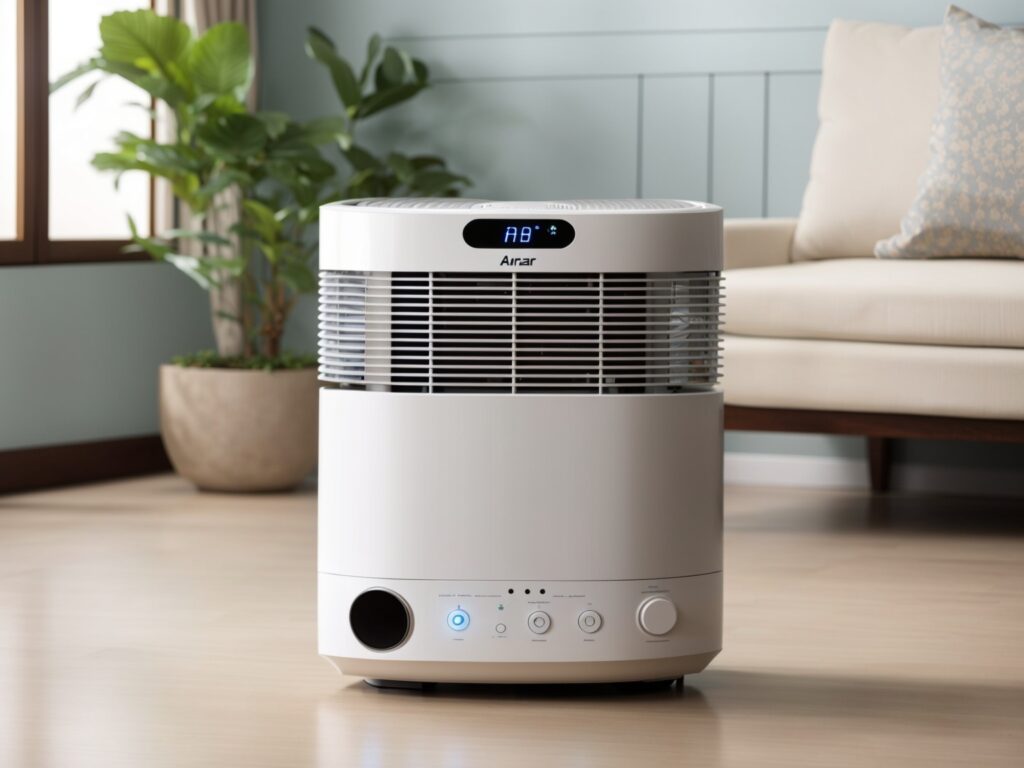
How Air Purifiers Work
Air purifiers employ a range of technologies and filtration methods to remove contaminants from the air:
Mechanical Filtration
HEPA filters and other mechanical filters physically trap particles as air passes through. These filters are incredibly effective at capturing allergens and pollutants.
Chemical Filtration
Activated carbon filters are essential for removing odors and gases. The activated carbon in these filters adsorbs gaseous pollutants, neutralizing unwanted smells.
UV-C Light
UV-C air purifiers use ultraviolet light to inactivate bacteria and viruses. The UV-C light damages the DNA or RNA of microorganisms, rendering them harmless.
Ionization
Ionizer air purifiers release negative ions into the air, charging particles like dust and allergens. These charged particles are then attracted to positively charged collector plates within the purifier.

Benefits of Using Air Purifiers
The use of air purifiers offers several notable benefits:
Improved Indoor Air Quality
Air purifiers are highly effective at removing contaminants, leading to cleaner and healthier indoor air.
Reduced Allergy and Asthma Symptoms
By eliminating allergens like dust mites and pet dander, air purifiers can significantly reduce allergy and asthma symptoms.
Elimination of Unpleasant Odors
Activated carbon filters in air purifiers remove odors, leaving your living space smelling fresh and clean.
Understanding Humidifiers
Definition and Purpose of Humidifiers
Humidifiers are devices designed to add moisture to the air, increasing humidity levels in indoor environments. They are commonly used to combat dry air, especially during the winter months, to prevent dry skin and respiratory issues.
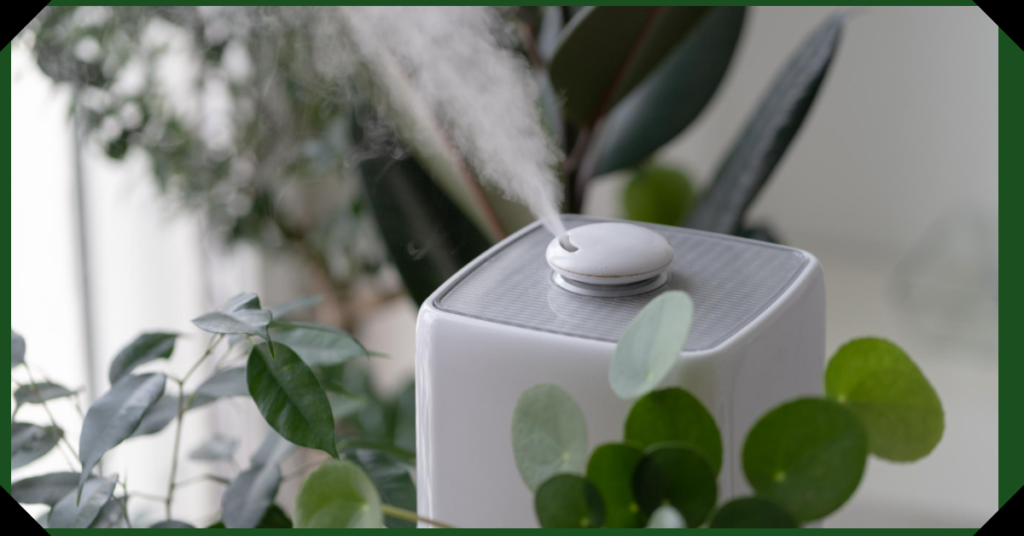
Humidifiers come in different types, each employing unique mechanisms to release moisture into the air:
Evaporative Humidifiers
Evaporative humidifiers use a fan to blow air through a wet wick or filter. The moisture in the wick evaporates, releasing a cool mist into the air.
Ultrasonic Humidifiers
Ultrasonic humidifiers create a cool mist using high-frequency vibrations. These devices are generally quiet and efficient.
Impeller Humidifiers
Impeller humidifiers use a rotating disc to produce a fine mist, which is released into the air.
Steam Vaporizers
Steam vaporizer humidifiers boil water and release steam into the air. They are effective in increasing humidity levels quickly.
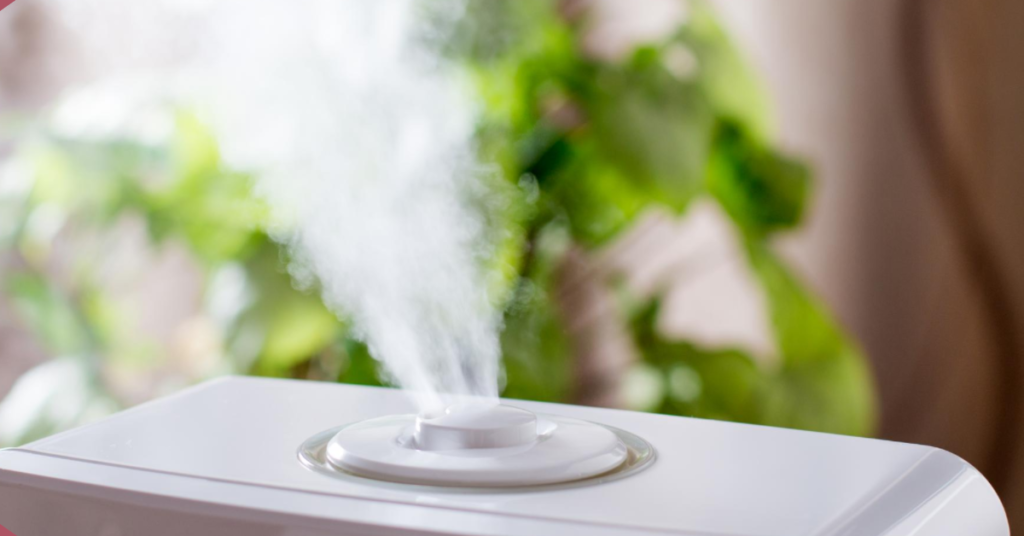
How Humidifiers Work
Different types of humidifiers work in varying ways to increase humidity levels:
Evaporative Humidifiers
In evaporative humidifiers, a fan blows air through a wet wick or filter. As the air passes through the moistened wick, the water evaporates, adding moisture to the air.
Ultrasonic Humidifiers
Ultrasonic humidifiers use high-frequency vibrations to create a fine mist. A small diaphragm vibrates at ultrasonic frequencies, breaking water into tiny droplets that are released as a cool mist.
Impeller Humidifiers
Impeller humidifiers employ a rotating disc to generate a fine mist. The rotating disc flings water at a diffuser, where it is broken into small droplets and released into the air.
Steam Vaporizers
Steam vaporizers heat water to produce steam, which is then released into the air. The warm steam adds moisture to the environment.
Benefits of Using Humidifiers
The use of humidifiers offers several key benefits.
Relief from Dry Skin and Irritated Nasal Passages
Humidifiers are particularly effective at preventing dry skin and alleviating dry nasal passages, making the indoor environment more comfortable.
Reduced Snoring and Improved Sleep
Maintaining proper humidity levels can help reduce snoring and enhance sleep quality, benefiting both the snorer and those sharing the space.
Protection of Wooden Furniture and Floors
By preventing excessively dry air, humidifiers help protect wooden furnishings and floors from drying out and developing cracks.
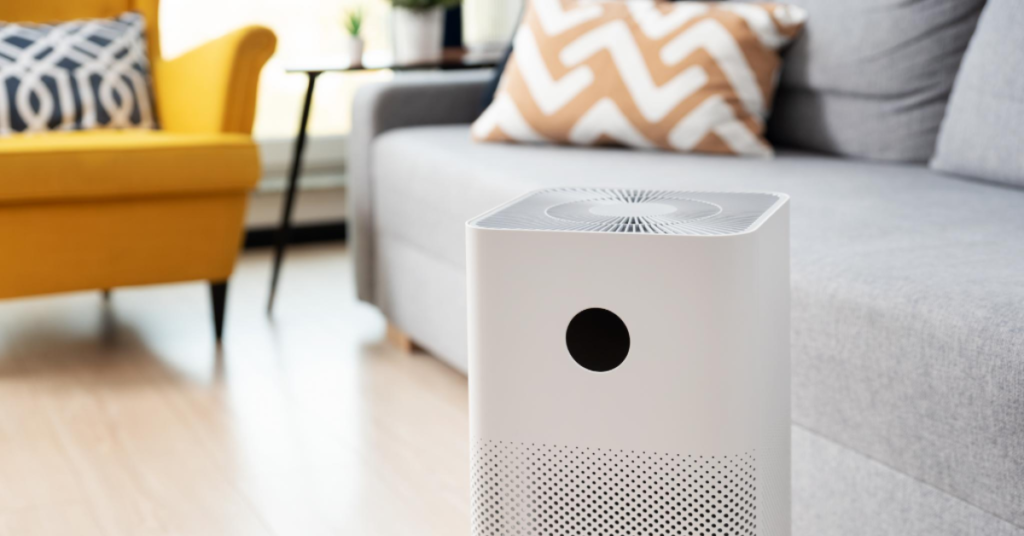
What is the difference between an Air Purifier and a humidifier?
The primary difference between an air purifier and a humidifier lies in their intended functions. An air purifier is specifically engineered to eliminate pollutants and allergens from the air, whereas a humidifier is crafted to introduce moisture into the environment. Depending on your requirements, both of these devices can prove advantageous in an office setting.
Key difference between Air Humidifier and Air purifier in Function
Air purifier and Humidifier difference is seen as they serve different primary functions, each addressing specific air quality concerns.
| Aspect | Air Purifiers | Humidifiers |
|---|---|---|
| Primary Function | Remove contaminants from air | Add moisture to the air |
| Ideal Use | Allergy and asthma relief | Combat dry indoor air |
| Technologies Used | HEPA filters, UV-C, etc. | Evaporative, ultrasonic, etc. |
| Common Issues Addressed | Allergens, odors, pollutants | Dry skin, dry throat, snoring |
Primary Function of Air Purifiers
The primary function of air purifiers is to remove airborne contaminants and particles. Air purifiers focus on improving indoor air quality by reducing allergens, pollutants, and microorganisms. They work to provide cleaner and healthier air by eliminating harmful particles from the environment.
Primary Function of Humidifiers
In contrast, the primary function of humidifiers is to increase humidity levels by adding moisture to the air. Humidifiers combat dry indoor air, which is often a concern during the winter or in dry climates. By releasing moisture into the environment, they alleviate dry skin, throat, and nasal passages.
How Air Purifier vs Humidifier Functions Differ
The primary difference between an air purifier and a humidifier in function lies in what they target. Air purifiers focus on eliminating contaminants and particles, while humidifiers are dedicated to raising humidity levels.
Air purifiers excel at:
- Removing allergens like dust, pollen, and pet dander.
- Capturing pollutants such as smoke particles and volatile organic compounds (VOCs).
- Inactivating bacteria and viruses through UV-C technology.
On the other hand, humidifiers excel at:
- Adding moisture to the air to prevent dry skin and irritation.
- Improving breathing by moisturizing nasal passages and throat.
- Maintaining proper humidity levels to protect wooden furnishings.
Understanding these distinct functions is essential for determining which device is most suitable for your specific needs and to understand main question of “what is the difference between air purifier and humidifier”.
Types of Contaminants Addressed in air humidifier vs air purifier
Air purifiers and humidifiers target different types of contaminants in the air, contributing to their contrasting functions.
| Contaminants Addressed by Air Purifiers | Contaminants Addressed by Humidifiers |
|---|---|
| Dust, pollen, pet dander | Dry indoor air |
| Mold spores, bacteria, viruses | Improved comfort |
| Odors and harmful gases | Prevention of dry skin and respiratory discomfort |
Contaminants Targeted by Air Purifiers
Air purifiers focus on removing a wide range of airborne contaminants:
- Allergens: Air purifiers are highly effective at capturing allergens like dust mites, pollen, and pet dander.
- Smoke Particles: They can eliminate smoke particles, reducing the odor and potential health risks associated with smoke.
- Microorganisms: UV-C air purifiers can inactivate bacteria and viruses, contributing to a healthier indoor environment.
- VOCs: Air purifiers with activated carbon filters adsorb volatile organic compounds (VOCs), improving air quality.
Contaminants Addressed by Humidifiers
Humidifiers primarily address concerns related to dry air:
- Dry Skin: By increasing humidity levels, humidifiers prevent dry skin and associated discomfort.
- Irritated Nasal Passages: Moist air from humidifiers can soothe dry and irritated nasal passages.
- Wooden Furnishings: Maintaining proper humidity levels helps prevent wooden furniture and floors from drying out and developing cracks.
The variation in the contaminants addressed underscores the distinct roles of air purifiers and humidifiers in enhancing indoor air quality and comfort.
Impact on Air Quality : Air purifier vs Humidifier
While both air purifiers and humidifiers contribute to improved indoor air quality, their impact differs in significant ways.
How Air Purifiers Improve Air Quality
Air purifiers enhance air quality by effectively reducing allergens, pollutants, and microorganisms. Their benefits include:
- Reduction of Allergens: Air purifiers remove allergens like pollen, pet dander, and dust mites, which can significantly alleviate allergy symptoms.
- Elimination of Smoke: They capture smoke particles, making the air fresher and reducing the risk associated with exposure to smoke.
- Inactivation of Microorganisms: UV-C air purifiers are capable of inactivating bacteria and viruses, ensuring cleaner and healthier air.
Air purifiers are particularly valuable for individuals with allergies, asthma, or those living in areas with high pollen or pollution levels.
How Humidifiers Affect Air Quality
Humidifiers enhance air quality by adding moisture to dry indoor air. Their benefits include:
- Alleviation of Dryness: Humidifiers prevent dry skin, throat, and nasal passages, making the indoor environment more comfortable.
- Improved Sleep: Maintaining proper humidity levels can reduce snoring and improve sleep quality.
- Protection of Furnishings: By preventing excessively dry air, humidifiers help protect wooden furniture and floors from drying out and developing cracks.
Humidifiers are especially useful in regions with low humidity, during the winter, or for those prone to dry skin and related discomfort.
Health Benefits : Air purifier vs Humidifier
Both air purifiers and humidifiers offer a range of health benefits, but they address different aspects of well-being. Let’s compare and contrast the health advantages of each.
| Health Benefits of Air Purifiers | Health Benefits of Humidifiers |
|---|---|
| Reduced allergy and asthma symptoms | Relief from dry skin and nasal irritation |
| Improved respiratory health | Enhanced sleep quality |
| Reduced exposure to harmful microorganisms | Protection of wooden furnishings and floors |
Health Benefits of Using Air Purifiers
Air purifiers provide numerous health benefits:
- Allergy and Asthma Management: By removing allergens and pollutants, air purifiers significantly reduce allergy and asthma symptoms.
- Improved Respiratory Health: Cleaner air is easier on the respiratory system, benefiting individuals with respiratory conditions.
- Enhanced Overall Health: Breathing cleaner air can contribute to better general health and well-being.
Air purifiers are especially valuable for those with allergies, asthma, or respiratory sensitivities.
Health Benefits of Using Humidifiers
Humidifiers offer specific health advantages:
- Moisturized Skin: By preventing dry skin and irritation, humidifiers contribute to healthier and more comfortable skin.
- Better Sleep: Improved humidity levels can reduce snoring and enhance sleep quality, leading to more restful nights.
- Nasal and Throat Comfort: Moist air from humidifiers soothes dry nasal passages and throat, promoting better respiratory health.
Humidifiers are particularly beneficial for individuals living in dry climates or experiencing discomfort due to dry air.
Choosing the Right Device with difference between an air purifier and a humidifier
Selecting the right device, whether an air purifier or a humidifier, depends on various factors. Here’s what to consider when making your choice:
Factors to Consider When Selecting an Air Purifier
Choosing an air purifier requires evaluating your specific air quality concerns and needs. Key considerations include:
- Type of Contaminants: Identify the specific contaminants or particles you want to remove from the air, such as allergens, smoke, or microorganisms.
- Room Size: Consider the size of the room where the air purifier will be used. Ensure the purifier’s capacity matches the room size.
- Noise Level: Some air purifiers can be noisy, so think about where and when you’ll be using it.
- Maintenance Requirements: Different air purifiers have varying maintenance needs, such as filter replacements or cleaning schedules.
Understanding your air quality needs and preferences will guide you to the most suitable air purifier for your situation.
Factors to Consider When Choosing a Humidifier
Selecting the right humidifier involves considering factors related to the indoor environment and personal preferences:
- Climate and Humidity Levels: Evaluate the climate and humidity levels in your region. Humidifiers are particularly useful in dry or arid climates.
- Room Size: Choose a humidifier with the appropriate capacity for the size of the room you intend to use it in.
- Desired Humidity Level: Use a hygrometer to measure the current humidity level in the room and determine how much moisture you need to add.
- Noise Tolerance: Consider noise levels, especially if you plan to use the humidifier in a bedroom or quiet space.
- Maintenance Requirements: Different types of humidifiers have varying maintenance needs, such as cleaning and filter replacement.
By understanding these factors, you can make an informed choice when selecting a humidifier that suits your specific needs.
Maintenance and Cleaning : Air Humidifier vs Air Purifier
Proper maintenance and cleaning are essential for both air purifiers and humidifiers. Each device has unique upkeep requirements.
Maintenance Requirements for Air Purifiers
Air purifiers generally require the following maintenance:
- Filter Replacement: Most air purifiers use filters that need periodic replacement. The frequency depends on the filter type and usage but is typically every 6 to 12 months.
- Cleaning: Regularly clean the exterior of the air purifier to prevent dust buildup, which can affect its performance.
- Check UV-C Bulbs: If your air purifier has UV-C technology, check the bulbs to ensure they are working correctly.
Maintenance Requirements for Humidifiers
Humidifiers come with specific maintenance needs:
- Cleaning: Regularly clean the water reservoir and the humidifier’s interior to prevent mold and bacteria growth.
- Filter Replacement: Some humidifiers use wick or filter systems that need replacement. Check and change these filters as required.
- Descale the Unit: If you have hard water, mineral deposits can accumulate in the humidifier. Periodically descale the unit to ensure proper operation.
Understanding and fulfilling these maintenance requirements is crucial to keeping your air purifier or humidifier functioning effectively.
Common Misconceptions
Various misconceptions surround on question of “what’s the difference between air purifier and humidifier”. Let’s address some common myths and clarify the facts.
Addressing Common Misconceptions About Air Purifiers
We have detailed guide on air purifier misconcesptions you can check out.
Misconception 1: Air purifiers are noisy and disruptive.
Fact: While some air purifiers produce noise, many models are designed to operate quietly, making them suitable for bedrooms and quiet spaces.
Misconception 2: Air purifiers remove all odors.
Fact: Air purifiers are most effective at removing particulate matter, but some models with activated carbon filters can help reduce odors.
Misconception 3: Air purifiers are unnecessary in areas with clean outdoor air.
Fact: Even in areas with good outdoor air quality, air purifiers can further enhance indoor air quality by removing allergens and pollutants.
Addressing Common Misconceptions About Humidifiers
Misconception 1: All humidifiers produce hot steam.
Fact: Many humidifiers, such as ultrasonic and impeller types, produce cool mist, which is safe for use in households with children and pets.
Misconception 2: Humidifiers are only for use during the winter.
Fact: Humidifiers are beneficial in dry climates and during any season when indoor air becomes excessively dry.
Misconception 3: Humidifiers can replace air purifiers.
Fact: While humidifiers improve air quality by adding moisture, they do not remove particles and contaminants like air purifiers.
Understanding these myths and facts will help you make informed decisions regarding the use of air purifiers and humidifiers in your home.
Cost Considerations: Difference between Humidifier and Purifier
When deciding between an air purifier and a humidifier, cost considerations play a significant role.
Initial Costs of Air Purifiers
The initial cost of an air purifier varies depending on the model and features. Generally, air purifiers have a wide price range. Basic models start at around $100, while advanced units with additional features can cost several hundred dollars. HEPA filters and UV-C technology models may be on the higher end of the price spectrum.
Initial Costs of Humidifiers
Humidifiers also offer a range of options with varying price points. Basic models can start as low as $20, while more advanced units with larger capacity and additional features can cost up to $200. Ultrasonic and impeller humidifiers are generally more affordable, while steam vaporizers may be in the mid-price range.
Operating Costs and Long-Term Expenses
In addition to the initial costs, consider the long-term operating expenses:
- Air purifiers require filter replacement, which can cost anywhere from $20 to $100 or more, depending on the filter type.
- Humidifiers may need replacement filters and regular cleaning, with maintenance costs varying based on the humidifier type.
Evaluating both the upfront expenses and long-term costs is essential when choosing between an air purifier and a humidifier.
Environmental Impact : Air Purifier vs Humidifier
Both air purifiers and humidifiers have implications for the environment, and their ecological footprint is an important consideration.
Discussing the Environmental Impact of Air Purifiers
Air purifiers have the following environmental considerations:
- Energy Consumption: Air purifiers consume electricity to operate, and their energy usage can vary based on the model and usage patterns. Selecting an energy-efficient model can help reduce the environmental impact.
- Filter Disposal: Most air purifiers use filters that require periodic replacement. Proper disposal of used filters is important to minimize environmental impact. Some models offer washable and reusable filters, reducing waste.
- Ozone Emissions: Some air purifiers, particularly ozone generators, emit ozone as part of their process. Ozone can have adverse effects on air quality and should be minimized.
Discussing the Environmental Impact of Humidifiers
Humidifiers also have environmental considerations:
- Water Usage: Humidifiers consume water to produce moisture. While the water usage of individual units is relatively low, it’s important to use them responsibly, especially in regions with water scarcity.
- Electricity Consumption: Ultrasonic and impeller humidifiers consume electricity to create mist. Similar to air purifiers, energy-efficient models are a greener choice.
- Mineral Deposits: In areas with hard water, humidifiers can accumulate mineral deposits. Regular cleaning and maintenance can help mitigate this issue.
Evaluating the environmental impact with understanding of “what is the difference between air purifier and humidifier” can guide you in making eco-conscious choices.
Practical Uses : What is the difference between air purifier and humidifier
Understanding the practical applications of air purifiers and humidifiers is crucial for deciding which device suits your specific needs. Let’s explore various scenarios where each device is useful.
Practical Applications of Air Purifiers
Air purifiers are beneficial in the following situations:
- Allergy and Asthma Relief: Individuals with allergies and asthma can experience significant relief by using air purifiers, which help remove allergens and irritants from the air.
- Smoking Environments: Air purifiers can effectively reduce secondhand smoke in homes where smoking is permitted.
- Pet Owners: Those with pets can enjoy cleaner air by using air purifiers to capture pet dander and hair.
- Allergy Seasons: During high pollen seasons, air purifiers can alleviate symptoms by capturing pollen and other allergens.
Practical Applications of Humidifiers
Humidifiers are beneficial in various scenarios:
- Dry Climates: In regions with low humidity, humidifiers can prevent dry skin, throat, and nasal passages, making the indoor environment more comfortable.
- Winter Months: Humidifiers are particularly useful during the winter when indoor heating systems can dry out the air.
- Sleeping Spaces: Using a humidifier in bedrooms can reduce snoring and improve sleep quality, leading to better rest.
- Preserving Wood: In homes with wooden furniture and flooring, humidifiers help protect against drying, cracking, and warping.
Incorporating air purifiers or humidifiers into your living space depends on your specific needs and the scenarios described above.
Is Air Purifier and Humidifier the same?
The distinction between air purifiers and humidifiers is essential to understanding their functions, but it’s not uncommon for people to wonder “is a humidifier the same as an air purifier”. In this section, we’ll addres common question “is an air purifier the same as a humidifier” and clarify the differences.
Misconception: Air Purifier and Humidifier are Interchangeable
Fact: Air purifiers and humidifiers are not the same; they serve different purposes and have distinct mechanisms of action.
- Primary Function: Air purifiers primarily focus on improving air quality by removing contaminants, allergens, and particles from the air. They are designed to capture and eliminate airborne pollutants, which can include dust, pollen, pet dander, smoke, and more.
- Primary Function: Humidifiers, on the other hand, are designed to add moisture to the air, increasing humidity levels in dry indoor environments. They combat issues related to low humidity, such as dry skin, irritated nasal passages, and parched throat.
- Operation: Air purifiers utilize filters, such as HEPA filters or activated carbon filters, to trap particles and contaminants. Some models may also incorporate UV-C technology to neutralize germs and viruses.
- Operation: Humidifiers disperse moisture into the air through various methods, including evaporation, ultrasonic technology, or impeller systems. They do not have filters for capturing particles.
- Health Benefits: Air purifiers primarily offer health benefits by reducing allergens and airborne irritants, making them beneficial for allergy and asthma sufferers.
- Health Benefits: Humidifiers enhance comfort by preventing dryness in the air, making breathing more comfortable, especially in dry climates and during winter.
In summary, air purifiers and humidifiers are not interchangeable devices. Their functions, mechanisms, and purposes are distinct, making each suitable for specific situations and indoor air quality needs.
Which is better Humidifier or Air Purifier?
Deciding whether a humidifier or an air purifier is better depends on your unique requirements and the specific indoor air quality issues you aim to address. In this section, we’ll explore different scenarios to help you determine which device may be more suitable for your needs.
Scenario 1: Allergies and Asthma
- Air Purifier: If you or your family members suffer from allergies or asthma, an air purifier is the better choice. It helps remove allergens and particles from the air, providing relief from symptoms.
Scenario 2: Dry Indoor Environment
- Humidifier: In regions with low humidity, especially during the winter, a humidifier is the better option. It adds moisture to the air, preventing dry skin, throat irritation, and other discomforts caused by dryness.
Scenario 3: Smoke or Odor Issues
- Air Purifier: If your indoor environment experiences smoke or odor problems, an air purifier with activated carbon filters is the preferable choice. It can effectively reduce smoke particles and eliminate odors.
Scenario 4: Sleep Quality
- Humidifier: To enhance sleep quality by reducing snoring and promoting better rest, especially in bedrooms, a humidifier is the better option. It prevents dryness that can contribute to snoring.
Scenario 5: Preservation of Wood or Musical Instruments
- Humidifier: When the goal is to preserve wooden furniture, flooring, or musical instruments, a humidifier helps maintain an appropriate level of humidity, preventing drying, cracking, and warping.
Scenario 6: Overall Air Quality Enhancement
- Both: For comprehensive air quality enhancement, you can use both an air purifier and a humidifier. Air purifiers will remove airborne contaminants, while humidifiers maintain optimal humidity levels.
It’s important to assess your specific needs and consider factors such as maintenance requirements, cost, and the environmental impact when making your decision. The best choice between a humidifier and an air purifier depends on the indoor air quality goals you aim to achieve. In some cases, using both devices concurrently may offer the most comprehensive solution for creating a healthier and more comfortable indoor environment.
Case Studies : Humidifier vs Air Purifier
To highlight the practical use and effectiveness of air purifiers and humidifiers, let’s examine a few case studies.
Presenting Case Studies Showcasing Air Purifier Effectiveness
Case Study 1: Allergy Relief
Scenario: A family with two children experienced severe allergy symptoms, including sneezing, runny noses, and itchy eyes during allergy season.
Solution: The family purchased a HEPA air purifier, which significantly reduced indoor allergen levels. The children’s allergy symptoms notably improved.
Case Study 2: Smoke Reduction
Scenario: A couple allowed smoking in a designated area of their home, resulting in residual odors and smoke particles.
Solution: Placing an activated carbon air purifier in the designated area effectively removed smoke particles and eliminated odors, allowing the couple to maintain a smoke-friendly space without impacting the rest of the home.
Case Study 3: Pet Allergies
Scenario: A household with two cats experienced issues with pet dander and allergies.
Solution: The installation of a specialized pet air purifier with HEPA filters reduced pet dander in the air. Family members reported a significant decrease in allergy symptoms.
Presenting Case Studies Showcasing Humidifier Effectiveness
Case Study 1: Winter Comfort
Scenario: A family living in a cold climate experienced dry skin, dry nasal passages, and discomfort during the winter months.
Solution: Adding an evaporative humidifier to the bedrooms provided moisture to the air, preventing dryness and enhancing comfort for the entire family.
Case Study 2: Snoring Reduction
Scenario: A couple experienced disrupted sleep due to one partner’s snoring.
Solution: Placing an ultrasonic humidifier in the bedroom increased humidity levels and reduced snoring frequency, resulting in improved sleep quality for both partners.
Case Study 3: Wood Protection
Scenario: A homeowner with antique wooden furniture noticed that the wood was drying out and showing signs of cracking.
Solution: Introducing an impeller humidifier to the living room and bedrooms helped maintain appropriate humidity levels, preserving the antique wooden furniture and preventing further damage.
Conclusion
In conclusion, we’ve thoroughly examined the fundamental question: “What is the difference between an air purifier and a humidifier? Air purifiers and humidifiers are valuable devices that enhance indoor environments in distinct ways. Understanding their functions, the types of contaminants they address, their impact on air quality, health benefits, and cost considerations is essential for making informed decisions.
We’ve addressed common misconceptions about these devices and helped you understand why air purifier vs humidifier is not a simple choice. The difference between an air purifier and a humidifier lies in their primary functions and mechanisms of action.
So, whether you’re pondering the difference between an air purifier and a humidifier or simply deciding between air humidifier vs. air purifier, remember that your choice should align with your indoor air quality goals, considering factors like maintenance requirements, cost considerations, and environmental impact. Informed decision-making will lead to a more pleasant living environment with cleaner, healthier air.
FAQ related with “What is the difference between an air purifier and a humidifier?
Which is better, an air purifier or an air humidifier?
The choice between an air purifier and an air humidifier depends on your specific needs. If you want to improve air quality by removing contaminants and allergens, an air purifier is better. For adding moisture to the air and alleviating dryness, a humidifier is the superior choice.
Do I need a humidifier if I have an air purifier?
It depends on your indoor environment. If you still experience dryness, a humidifier can complement an air purifier by increasing humidity levels. However, it’s not always necessary if your air purifier effectively addresses your air quality concerns.
Is it good to sleep with an air purifier and a humidifier?
Yes, it can be beneficial to sleep with both devices, as long as they serve your specific needs. An air purifier can help ensure cleaner air for better breathing, while a humidifier can provide comfort by preventing dryness, especially during sleep.
Can you get a humidifier and an air purifier in one?
Yes, there are combo devices available that integrate both humidifier and air purifier functions. These hybrid units can be convenient for addressing multiple indoor air quality concerns with a single appliance.
DheerajSonwane is a dedicated writer with expertise in air purification technologies. He focuses on providing well-researched content to help readers improve indoor air quality in homes and businesses. As the lead writer at AirPurifierMaster.com, Dheeraj offers practical advice his insightful reviews guide individuals in choosing the best air purifiers for their needs.

